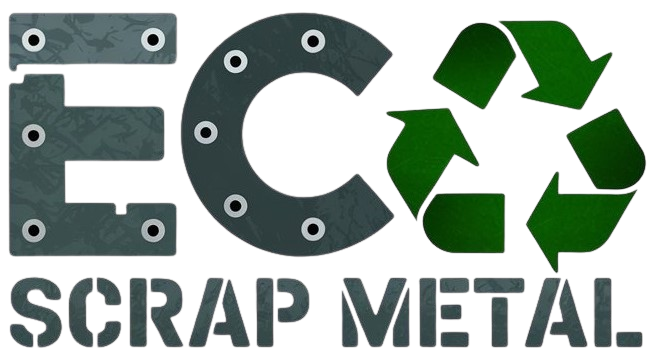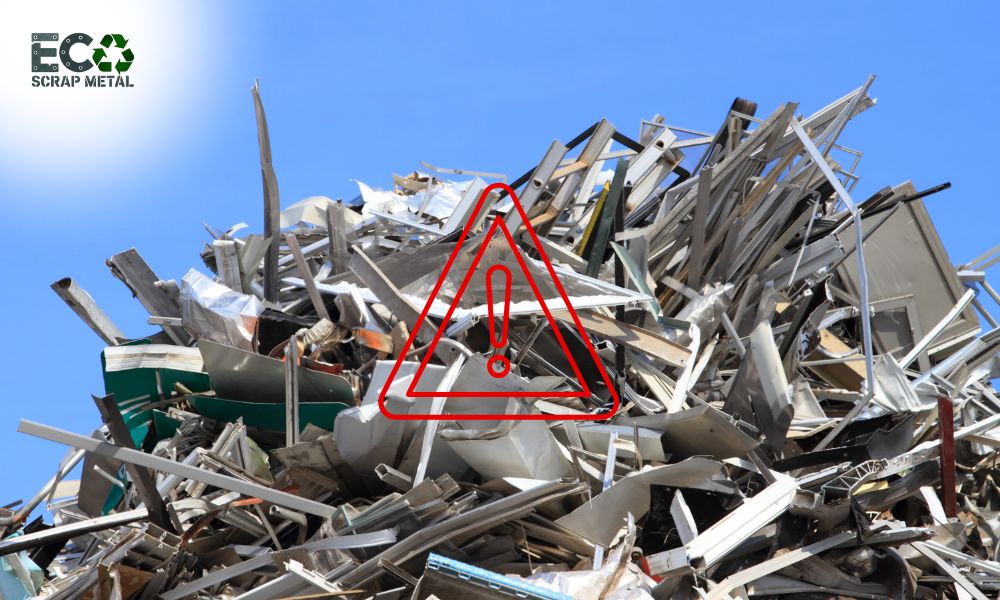Scrap Metal Industry Act: Everything You Need to Know
The scrap metal industry plays an important role in the global economy by providing raw materials for manufacturing, construction, and countless other industries. But while the process of selling scrap metal may seem straightforward, there’s more to it than meets the eye. The industry operates under a set of regulations designed to ensure proper handling, legal transactions, and environmental responsibility. At the core of these regulations is the Scrap Metal Industry Act, which governs how scrap metal is processed and traded.
In this blog, we’ll break down everything you need to know about the Scrap Metal Industry Act its role, how it affects buyers and sellers, and the important aspects that you should be aware of when engaging in the scrap metal business.
What is the Scrap Metal Industry Act?
The Scrap Metal Industry Act is a collection of laws and regulations designed to regulate the collection, sale, and processing of scrap metal. These regulations are in place to ensure the responsible trade of scrap metal while preventing illegal activities, like the theft of metal materials. The act also promotes transparency, fair trade, and environmental safety. Here are the key aspects of the Scrap Metal Industry Act:
- Record-Keeping and Documentation: Every transaction must be documented and traceable. Sellers and buyers are required to keep detailed records of scrap metal sales.
- Licensing and Permits: Buyers and scrap yards must obtain the necessary licenses and permits to legally handle scrap metal.
- Stolen Metal Prevention: The act aims to reduce metal theft by requiring proof of ownership and identification from sellers.
- Environmental Safety: The regulations outline safe storage and handling procedures to prevent environmental damage from hazardous materials like lead or batteries.
- Fair Trading Practices: The act ensures that scrap metal trading is done fairly, with transparency in pricing and transactions.
How Does the Scrap Metal Industry Act Affect Sellers?
For sellers of scrap metal, the Scrap Metal Industry Act outlines several responsibilities that must be followed to ensure legal and transparent transactions. The act helps to minimise fraud and ensures that only legally acquired materials are bought and sold. Here’s what the Scrap Metal Industry Act means for sellers:
- Identification Requirements: Sellers are often required to provide government-issued identification when selling scrap metal.
- Proof of Ownership: Sellers must demonstrate that they own the scrap metal or have legal rights to sell it.
- Detailed Transaction Records: Every sale must be recorded, including the seller’s details and the type of scrap metal sold.
- Payment Tracking: Payments are usually made through traceable methods such as bank transfers or checks to prevent illegal payments.
- Scrap Material Verification: Sellers might need to verify the composition of their scrap to ensure it’s properly categorised (e.g., ferrous vs. non-ferrous).
- Compliance with Local Regulations: Sellers must ensure that they comply with local, state, and national regulations that govern scrap metal transactions.
The Role of Scrap Metal Buyers and Yard Operators
Scrap metal buyers and yard operators play a vital role in the industry by acting as intermediaries between sellers and manufacturers. These buyers must adhere to several regulations under the Scrap Metal Industry Act to ensure the proper handling and sale of scrap metal. Here are the key responsibilities of scrap metal buyers:
- Maintaining Transaction Records: Buyers are required to document every transaction, including the details of the metal sold, its origin, and the seller’s information.
- Licensing and Certification: Buyers must hold the necessary licenses and certifications to legally operate as scrap metal buyers and processors.
- Metal Sorting and Grading: Buyer’s sort and grade scrap metal based on its type and value (e.g., ferrous vs. non-ferrous metals).
- Environmental Compliance: Buyers must adhere to environmental safety standards to properly handle hazardous materials and prevent pollution.
- Worker Safety Protocols: Buyers and yard operators must follow safety protocols and provide protective gear to workers to prevent injuries.
Step-by-Step Process: From Seller to Manufacturer
Once your scrap metal is sold to a buyer, it begins a journey that ultimately results in it being used in new products. The entire process involves several stages, each critical for ensuring that the metal is reused efficiently and responsibly. Here’s the typical process your scrap metal goes through after it’s sold:
- Sorting and Grading: Metals are sorted into categories (ferrous and non-ferrous) and graded based on their quality and composition.
- Compacting and Baling: To make transport easier, some scrap metals are compacted into blocks or baled to save space.
- Stripping and Cleaning: Certain metals, like copper wiring, are stripped of insulation or cleaned to remove contaminants.
- Cutting and Shredding: Larger metal pieces, like car parts or beams, are cut down or shredded to prepare them for further processing.
- Melting and Refining: The processed metal is melted down in foundries or steel mills, where it is refined into new products.
- Manufacturing and Reuse: The refined scrap metal is then used by manufacturers to create products like cars, electronics, or building materials.
Regulations and Safety: How the Act Protects You
The Scrap Metal Industry Act is not only about tracking metal it also ensures that the entire industry operates responsibly. These regulations protect both buyers and sellers, as well as the environment, by establishing safety, legal, and environmental protocols. Here’s how the Scrap Metal Industry Act ensures safety and compliance:
- Stolen Metal Prevention: Sellers are required to provide proof of ownership, and buyers must verify the legality of the scrap before purchasing.
- Environmental Protection: The act ensures that hazardous materials are safely handled to prevent pollution and environmental damage.
- Worker Safety: It mandates that scrap yard workers wear protective gear and follow safety procedures to avoid injuries.
- Compliance with Laws: Both buyers and sellers must adhere to local, state, and federal regulations regarding scrap metal transactions.
- Transaction Transparency: Every transaction must be recorded and traceable, creating a transparent process for both sellers and buyers.
- Inspection of Materials: Scrap yards are required to inspect materials to prevent dangerous or illegal items from being processed.
Why Compliance Matters: The Importance of Following the Act
Adhering to the Scrap Metal Industry Act not only helps prevent illegal activities but also ensures that the entire industry operates smoothly and efficiently. Compliance benefits both sellers and buyers by maintaining industry standards, preventing fraud, and fostering a fair marketplace. Here’s why compliance matters:
- Legal Protection: Compliance with the act ensures that all transactions are legal and properly documented.
- Safety for Workers and Consumers: Adherence to safety protocols minimises risks for workers and consumers.
- Environmental Responsibility: The act ensures that hazardous materials are handled safely, protecting the environment.
- Transparency and Trust: By maintaining detailed records, the industry fosters trust between sellers, buyers, and manufacturers.
- Preventing Fraud: The act helps to prevent the sale of stolen materials, ensuring that only legally acquired metal is traded.
Conclusion: Understanding the Scrap Metal Industry Act
The Scrap Metal Industry Act plays an essential role in regulating the scrap metal industry, ensuring that transactions are safe, legal, and environmentally responsible. Whether you’re a seller or a buyer, understanding the key regulations and following the appropriate procedures is crucial to participating in this industry.
By complying with the rules set forth in the act, you help maintain a fair and sustainable scrap metal market that benefits everyone involved from individual sellers to global manufacturers.

